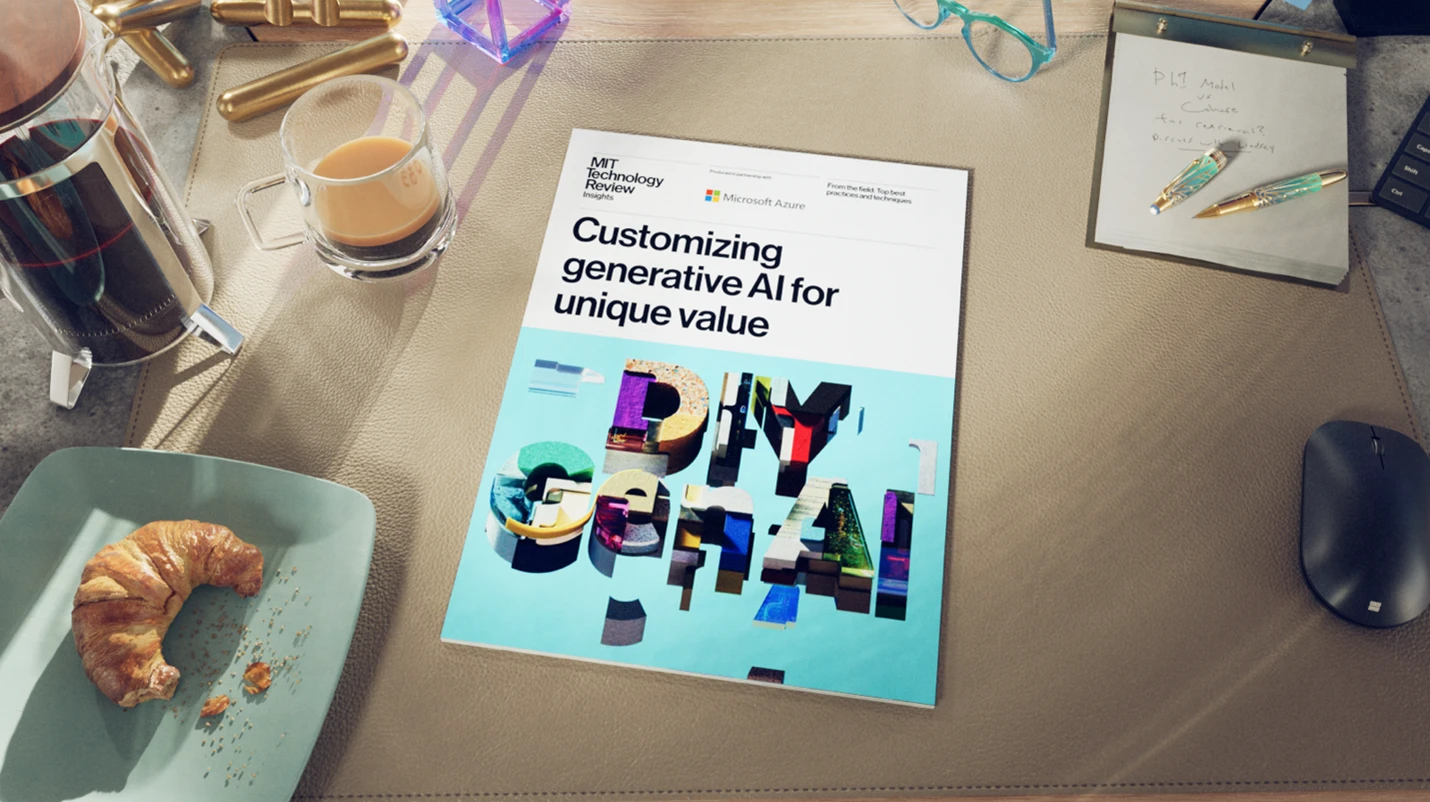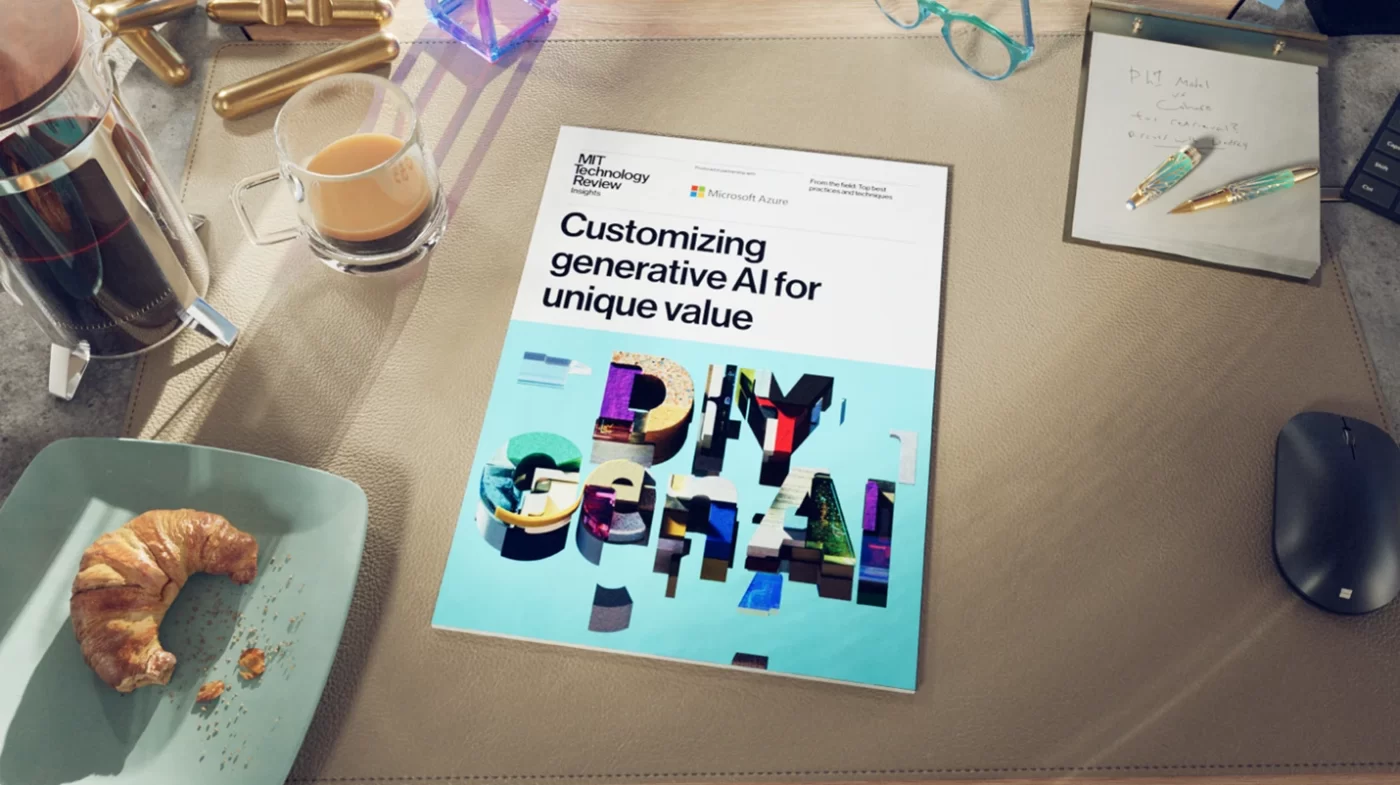Over the last couple of years, I’ve seen tech teams go from feeling excited yet overwhelmed by the blistering pace of AI advancement to now helping bend and direct that curve of innovation using the cutting-edge capabilities of Azure AI Foundry.
This rapid transformation underscores the critical role of a robust enterprise AI platform to help you push the AI curve. We continually add capabilities to Azure AI Foundry to empower your teams to do just that. That means business leaders in the era of AI have a lot to consider—it’s easy to get lost in the forest when all the new trees keep making it bigger.
Today I’m sharing a couple of the most important Azure AI Foundry innovations announced in recent weeks that keep the forest in view, and that improve operational efficiency, maximize investments, so that you can focus on differentiating in a competitive landscape.
Tools to help power your agentic future
AI agents have the potential to transform every business process—revolutionizing productivity by automating routine tasks and enabling employees to focus on more strategic work. We’ve announced several agentic capabilities and tools on Azure AI Foundry to help you efficiently put AI agents to work in your organization.
New knowledge tools with Azure AI Agent Service securely ground AI agent outputs with enterprise knowledge, for accurate, relevant, and contextually aware responses. Azure AI Agent Service provides a wide range of knowledge tools for various data types, including unstructured, structured, private, licensed, and public web data.
And Microsoft Fabric data agents were announced today at the Microsoft Fabric Community Conference to allow developers using Azure AI Agent Service to connect customized, conversational agents created in Microsoft Fabric. These data agents can reason over and unlock insights from various enterprise structured and semantic data sources, making better data-driven decisions. Fabric data agents retrieve, understand, and synthesize data from OneLake, determining when to use specific data and how to combine it.
Combining Fabric’s sophisticated enterprise data analysis capabilities with Azure AI Foundry’s cutting-edge GenAI technology means you can create custom conversational AI agents leveraging domain expertise. And the Fabric-Foundry pathway connects your data teams with your dev teams, putting them on a common, secure, and enterprise-ready AI platform.
One customer making use of the Microsoft Fabric-Azure AI Foundry bridge is NTT DATA. NTT DATA leverages data agents in Microsoft Fabric to actually have conversations with HR and back office operations data to better understand what is happening in the organization.
We also recently announced two more capabilities to empower businesses to deploy AI not just as an assistant, but as an active digital workforce:
Responses API is a powerful tool enabling AI-powered apps to seamlessly retrieve information, process data, and then act. It simplifies complex tasks, allowing your business to operate more efficiently and ultimately reduce costs.
Computer-using agent, or CUA, is a breakthrough AI model that can navigate software interfaces, execute tasks, and automate workflows. It can open applications, click buttons, fill out forms, and navigate multi-page workflows. CUA can adapt dynamically to changes for smooth operations across both web and desktop applications, integrating disparate systems without API dependencies.
Enhancing AI efficiency and performance with Azure AI Foundry
The only thing growing as fast as generative AI technology is the number of use cases for it across your organization, along with the need for tools to optimize efficiency and performance. Azure AI Foundry includes a suite of governance tools and controls to monitor and manage costs, compliance, performance, and more. We also added NVIDIA NIM microservices and NVIDIA AgentIQ toolkit to unlock unprecedented efficiency, performance, and cost optimization for your AI projects.
Part of the NVIDIA AI Enterprise software suite, NVIDIA NIM is a suite of easy-to-use microservices engineered for secure, reliable, and high-performance AI inferencing, and are built to scale seamlessly on managed Azure compute, providing:
- Zero-configuration deployment: Get started quickly with out-of-the-box optimization.
- Seamless Azure integration: Works effortlessly with Azure AI Agent Service and Semantic Kernel.
- Enterprise-grade reliability: Benefit from NVIDIA AI Enterprise support for continuous performance and security.
- Scalable inference: Tap into Azure’s NVIDIA accelerated infrastructure for demanding workloads.
- Optimized workflows: Accelerate applications ranging from large language models to advanced analytics.
Stay agile and performant with Azure OpenAI Service Provisioned spillover
Provisioned (PTU) spillover is a new feature in Azure OpenAI Service that helps ensure consistent and efficient performance of AI applications, even during high usage periods.
Now in public preview, PTU spillover automatically reroutes excess traffic from your provisioned deployments to help maintain smooth service operation and uninterrupted critical processes. This feature gives you the flexibility to manage unexpected traffic bursts or peak demand season without compromising performance so you can adapt to dynamic conditions and maximize your AI investments.
New report: Customized generative AI experiences to differentiate your business
One way we see more and more companies using AI to push the curve on innovation is by leaning into customization capabilities that can create distinctive experiences or services that help their business stand out in the competitive market.

We recently released a report, DIY GenAI: Customizing generative AI for unique value, that details how businesses are using capabilities like fine-tuning, retrieval-augmented generation, or RAG, and agentic specialization to differentiate. After all, the world’s most powerful AI models don’t know anything about your specific business so it’s your unique business data and customization that helps you differentiate from the competition.
The report also highlights the motivations, methods, and challenges faced by technology leaders as they tailor AI models to create net-new value for their businesses.
The findings are worth reading because they offer a glimpse at where AI development is going in the future. I’m confident that what feels custom today will most likely be the norm faster than we can all believe.
Build a more accessible world with Azure AI Foundry
Microsoft has a long-standing legacy of building inclusive technologies, from early screen readers to speech-to-text innovations. This commitment to accessibility is well in line with our mission as a company—and it’s now being realized in Azure AI Foundry where it’s integrated right into the AI development lifecycle.
Accessibility and inclusivity in AI are essential for any business because they can help expand your reach, boost customer satisfaction, and even enhance your reputation for social responsibility. Put simply, prioritizing these values can drive innovation and your long-term success.
Kickstart your AI transformation with Azure AI Foundry
Can you believe that was just March? We delivered so much more! From exciting developments in Azure AI Foundry to our comprehensive approach to trustworthy AI, we’re here to support you and lead through this fast-paced era of AI. We’re proud to offer a comprehensive platform with quality, flexibility, security, safety, and choice. When it’s time to invest in AI transformation for your business, you can trust that the latest innovations are ready and waiting for you on Azure AI Foundry.
About Jessica
Jessica leads Azure Data, AI, and Digital Applications at Microsoft. Find Jessica’s blog posts here and be sure to follow Jessica on LinkedIn.
The post The latest Azure AI Foundry innovations help you optimize AI investments and differentiate your business appeared first on Microsoft Azure Blog.

